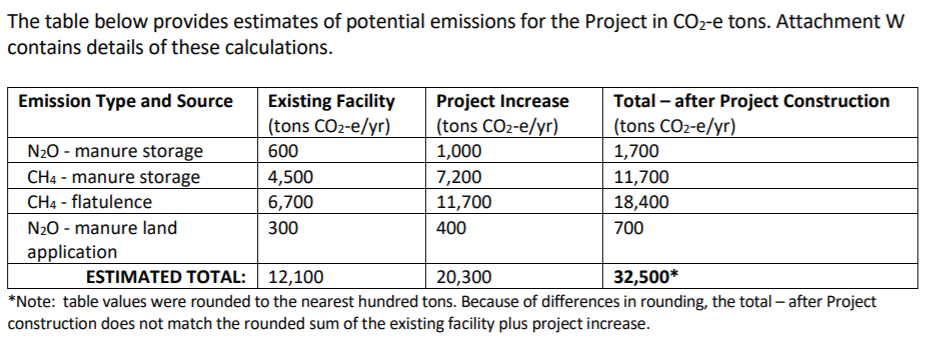Pollution Control Agency Steps in It on Cow Emissions, Shows They Have No Business Regulating Greenhouse Gases On the Agriculture Industry
Last year, I wrote about how the Minnesota Center for Environmental Advocacy (MCEA), a group that opposes mining and reliable natural gas and coal-fired power plants, sued the Minnesota Pollution Control Agency (MPCA) at the Minnesota Court of Appeals for not considering the impact that expanding a dairy operation would have on greenhouse gas emissions during the permitting process.
Surprisingly, the Court of Appeals agreed with MCEA and sent the permit back to MPCA to determine the greenhouse gas emissions that would be generated from expanding the farm. MPCA has now released its supplement to its Environmental Assessment Worksheet, and it contains an embarrassing error that should make every farmer in Minnesota worried about the increasing role environmental groups are want the government agency to play in regulating their livestock, businesses, and livelihoods.
According to the MPCA documents:
Greenhouse Gases
The MPCA estimates the Project would directly release GHG emissions and indirectly affect GHG emissions from related activities. In general, the primary GHG emissions from dairy operations are methane (CH4) and nitrous oxide (N2O). Direct GHG emissions are released from manure storage and animal flatulence [emphasis added]. Indirectly, GHG emissions are released as a result of the land application of manure, although GHG emissions will be reduced through other Project-related activities.
This comment is stunningly incorrect, and it demonstrates the folks at MPCA know as much about agriculture as freshman Congresswoman Alexandria-Ocasio Cortez.
The vast majority, 95 percent, of methane emissions from cows do not come from “animal flatulence,” they come from belching. Cows have four stomachs, and methane is released as food in the rumen, the first stomach of the cow, is belched up and chewed again by the cow, as you can see in the video below. This process is called enteric fermentation.
MPCA also makes this error again in the table below. But MCPA should have not made this error, because nowhere in the 669 page document, the Inventory of Greenhouse Gas Emissions and Sinks 1997-2017 published by the Environmental Protection Agency, which MPCA claims to have used to create the table, does it even use the word flatulence. In contrast, enteric fermentation is mentioned 57 times.

Nonetheless, MPCA stated their expertise in greenhouse gas emissions led them to create the table above.
“The MPCA had to apply its technical expertise and experience with GHG emissions inventories to determine which Project-related activities to quantify because Environmental Quality Board guidance is not currently available, and the information MPCA would need to conduct a full GHG life-cycle analysis is not readily available. The MPCA chose to quantify the sources listed in the above table because these are the sources MPCA uses to estimate GHG emissions for the entire agricultural sector on a statewide basis, and the U.S. Environmental Protection Agency provides emission factors for these sources [emphasis added].”
More than anything, this supplemental worksheet shows the regulators at MPCA don’t know the first thing about cows, farming, or where emissions actually come from, and this should worry everyone in the agricultural community because after conducting this assessment for Daley Farms, the MPCA determined that GHG emissions should be disclosed for all future feedlot projects requiring environmental review.
It is easy to put large farms in the crosshairs, they are big and often garner significant pushback from local communities, but let’s not pretend that groups like MCEA will not use this decision by the Court of Appeals as a starting point to force smaller and smaller operations to jump through similar red tape until every farm in the state of Minnesota is required to get a permit every time they want to buy more cattle or other livestock to expand their operations.
The legislature needs to come together as quickly as possible and pass a law that expressly prohibits the MPCA from considering the greenhouse gas impact of agricultural activities in the permitting process to keep similar lawsuits from harming Minnesota farmers. If Governor Walz is serious about his “One Minnesota” policy, this would the right time to start showing it.